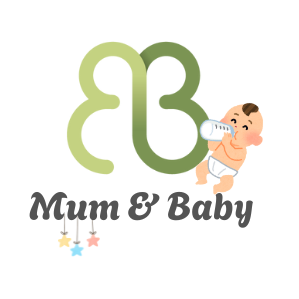
Pregnant mothers' precautions and skin care during pregnancy: a comprehensive health care guide

Pregnancy is a special journey in every woman's life. As the baby grows in the womb, expectant mothers experience tremendous changes both physically and mentally. To ensure the health of both mother and baby, it's important to be aware of the following changes and important precautions during pregnancy:
Changes during pregnancy
First month
- There are often no obvious pregnancy symptoms at this time, but early pregnancy reactions such as fatigue and nausea may occur.
- Pay attention to balanced nutrition and take in more folic acid, calcium and other key nutrients during pregnancy.
- Maintain a good work and rest schedule and mental state, and exercise moderately.
Second month
- At this time, the fetus begins to develop rapidly and obvious morning sickness may occur.
- It is necessary to supplement nutrition reasonably to ensure the intake of nutrients such as protein and vitamins.
- Take vitamins for pregnant women appropriately to improve physical discomfort.
Third month
- During this stage, the fetus's organ development is basically complete, and symptoms such as skin itching may occur.
- Moisturizing and caring for the skin is very important. You can choose a mild pregnancy oil specifically for pregnancy.
- Pay attention to rest, avoid excessive fatigue, and maintain a good mental state.
Fourth month
- As the fetus grows, you may experience back pain, edema and other discomforts.
- Pay attention to maintaining a good sitting and sleeping posture, and moderate exercise can relieve symptoms.
- It is recommended to have prenatal checkups to detect and solve potential problems in a timely manner.
In the face of the above changes, pregnant mothers need to pay special attention to the following aspects of care:
Pregnancy care precautions
1. Reasonable diet plan for pregnancy
A healthy diet is crucial for the health of both pregnant women and their fetuses. Pregnant women need to consume adequate protein, vitamins, and minerals, while also limiting their sugar and fat intake. It's recommended to consume plenty of fresh fruits and vegetables, whole grains, and low-fat dairy products.

Dietary recommendations during pregnancy
- Protein foods: eggs, milk, soy products, lean meat, etc.
- Carbohydrate foods: brown rice, whole wheat bread, potatoes, etc.
- Vitamin foods: green leafy vegetables, fruits, nuts, etc.
- Calcium-rich foods: milk, soy products, dried fish, etc.
- Iron-rich foods: liver, red meat, seafood, etc.
2. Get enough sleep
During pregnancy, you need 7-9 hours of sleep daily. Adequate sleep helps regulate your mood, reduce fatigue, and prepare you for delivery. Maintain a regular sleep schedule, relax before bed, and maintain a comfortable and quiet sleeping environment. If you experience insomnia, moderate exercise can help improve sleep quality, but avoid excessive exercise during pregnancy. Avoid stimulating foods and consume more sleep-promoting foods, such as milk and bananas.

3. Exercise properly during pregnancy
Moderate exercise, such as walking, swimming, and prenatal yoga, can help improve a pregnant woman's mental and physical well-being. Regardless of the type of exercise chosen, it's recommended to follow a doctor's advice, proceed gradually, and exercise in moderation. At the same time, pay special attention to safety and avoid overexertion or improper posture that can harm the body. Maintaining a healthy mental and physical state during pregnancy is beneficial to both the mother and the fetus.
4. Regular prenatal checkups
Pregnant women need regular prenatal checkups to monitor fetal development and identify and address any potential problems promptly. Regular prenatal checkups allow doctors to identify and treat potential issues promptly, ensuring the safety of both mother and baby. Prenatal checkups not only diagnose medical conditions but also provide guidance on diet, exercise, and other aspects of pregnancy, providing comprehensive support for a healthy pregnancy.
5. Relax and relieve stress
During pregnancy, you may feel nervous and anxious. Therefore, it's important to learn to relax and engage in beneficial activities, such as yoga, meditation, or music. Sharing your feelings with friends and family can also provide support.
Physically, as the belly continues to grow during pregnancy, there's a chance of developing stretch marks. These lines typically appear on the belly, waist, buttocks, and breasts, causing distress to many expectant mothers. Stretch marks are skin tears caused by a rapid increase in size over a short period of time. They typically appear on the abdomen, buttocks, thighs, and breasts. Initially, they appear red or purple, then gradually fade, but they are difficult to completely eliminate.
What are the causes of stretch marks?
- Poor skin elasticity: Some pregnant women have poor skin elasticity and are prone to stretch marks.
- Rapid weight gain: During pregnancy, weight gain is too rapid and the skin cannot stretch to keep up.
- Genetic factors: Pregnant women with a family history of stretch marks are more likely to develop them.
- Hormone imbalance: Hormone imbalance is also an important cause of stretch marks.

How to effectively prevent stretch marks?
- Reasonably control your weight during pregnancy: maintain a weekly weight gain of 0.5-2 kg.
- Keep skin moisturized and elastic: regularly use moisturizing lotions and pregnancy oils specially designed for pregnancy.
- Supplement vitamins C and E: helps enhance skin elasticity and prevent stretch marks.
- Do a good job of sun protection: avoid excessive exposure of the skin to the sun and reduce pigmentation.
- Moderate exercise: promotes blood circulation and enhances skin elasticity.
How to choose pregnancy oil? Things to note when choosing pregnancy oil
1. Ingredient safety
When choosing a pregnancy oil, pay special attention to the ingredients. Avoid those containing irritants like fragrances, alcohol, and antioxidants, as these may cause allergies or discomfort. It's best to choose plant-based oils like olive oil, sesame oil, and jojoba oil, as these natural ingredients are gentle and beneficial to the skin.
2. Penetration and moisturizing ability
A high-quality pregnancy oil should have good penetration and be quickly absorbed by the skin. It should also have strong moisturizing effects and maintain skin elasticity. You can try a small sample first to observe the skin's absorption and the lasting moisturizing effect.
3. Suitable for use during pregnancy
Some skincare oils, while creamy, are still not suitable for use during pregnancy. Make sure you choose a pregnancy oil or other pregnancy skincare oil labeled "pregnancy-specific" or "safe for pregnant women."
4. Physical properties
Pregnancy oils should preferably be liquid or creamy in texture, easy to apply and absorb. Avoid oils with a strong sense of grain, as this may affect the feel of use.
5. Natural plant essential oils
Adding a small amount of natural essential oils to the base oil can also help improve skin condition. Essential oils such as lavender and rose have a calming and conditioning effect.
Maternea Elastic Nourishing Skin Oil - Specially designed for pregnant mothers

This pregnancy oil, a Consumer Council 5-star recommendation, contains 99.6% naturally nourishing ingredients and is suitable for use from the very beginning of pregnancy. Containing natural ingredients such as soybean oil, jojoba oil, sweet almond oil, and rice germ oil, it deeply nourishes and revitalizes skin cells. It protects rapidly expanding skin during pregnancy, relieves dryness and sensitivity, and improves elasticity to prevent the appearance of stretch marks, making it a highly recommended pregnancy oil for expectant mothers. Its light, non-sticky texture spreads easily and absorbs easily, making it suitable for humid environments like Hong Kong.
Learn more about Maternea Elasticity Nourishing Skin Care Oil
How to use pregnancy oil
Using pregnancy oil is simple. Massage it into damp skin daily throughout your pregnancy, especially into areas prone to stretch marks. Gently massaging in will stimulate circulation and allow the oil's nutrients to be absorbed by your skin. It's best to apply pregnancy oil in the morning and evening to ensure your skin is fully moisturized and cared for.

In summary, pregnancy is a unique journey for women, which brings about different changes both physically and mentally. As long as you take good care of yourself and relax, including a reasonable diet, lifestyle habits, and the use of pregnancy oils, you can help prevent stretch marks and alleviate pregnancy discomfort, allowing pregnant mothers to enjoy the whole wonderful process while keeping their skin beautiful and healthy during this special journey.
